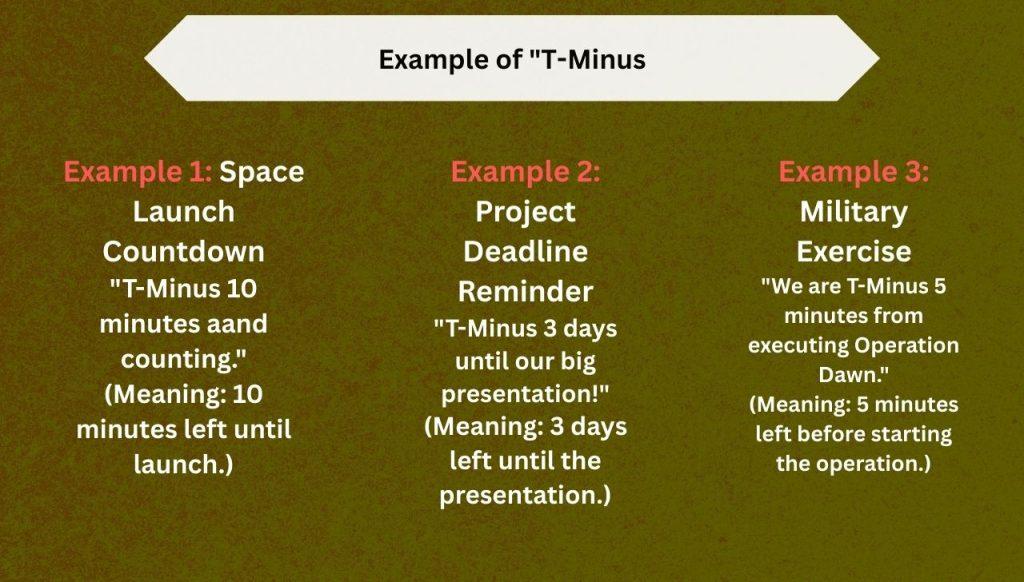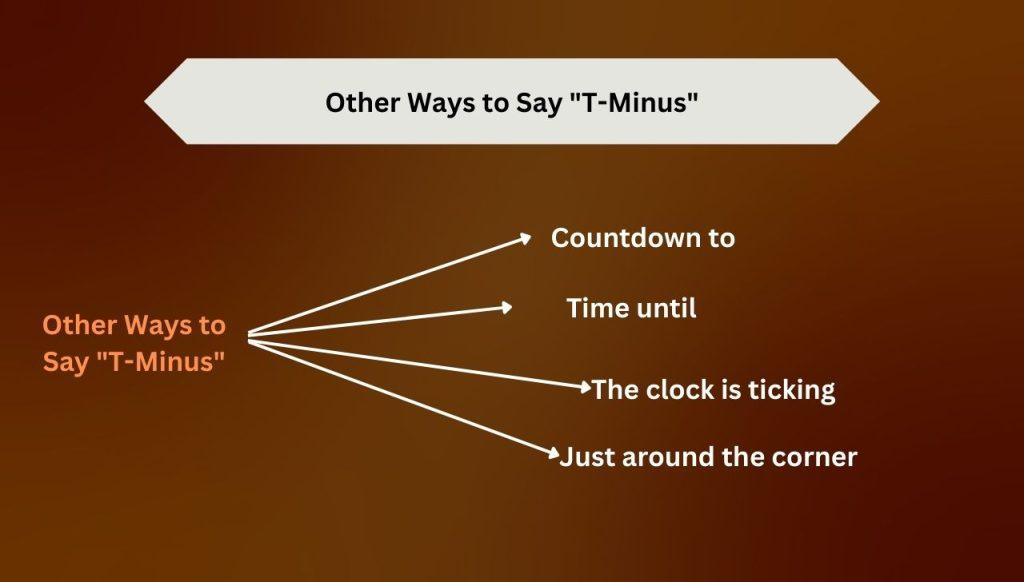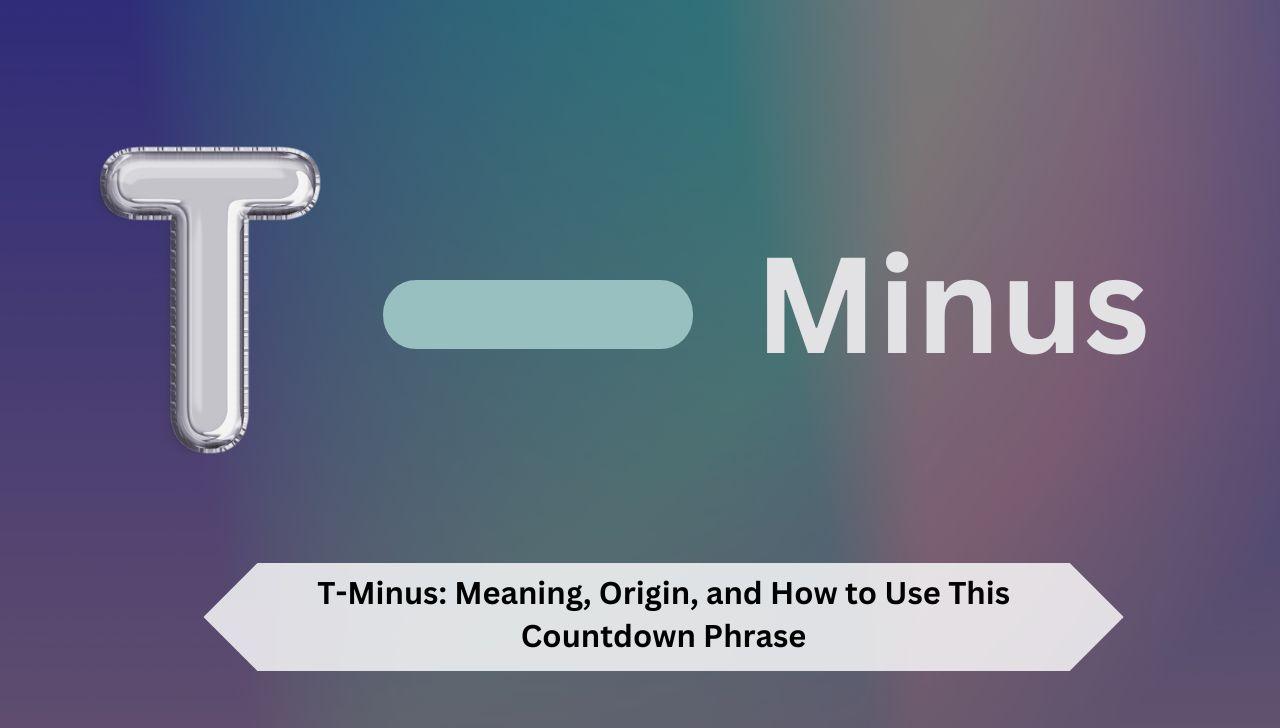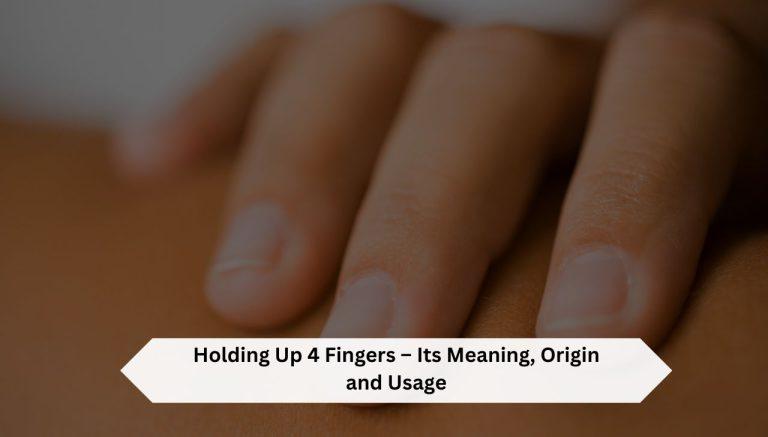T-Minus: Meaning, Origin, and How to Use This Countdown Phrase
The term “T-Minus” is often heard before a rocket launch, highlighting the precise countdown until the event. This phrase has roots in the early days of space travel and has become a part of everyday language, often used to signify any significant event on the horizon.
It reflects the thorough planning and exact timing essential in rocket launches, where every second is crucial. This countdown language helps the team stay coordinated and allows the public to feel connected to the mission. It bridges the gap between the complex world of space travel and the general audience, fostering a shared sense of anticipation and understanding.
What Does “T-Minus” Mean?
“T-Minus” simply means the time left until something is planned to happen, usually a space rocket taking off. This way of counting time goes backwards. For instance, T-Minus 10 minutes means exactly 10 minutes until the event starts.
It’s a straightforward way to make sure everyone involved knows exactly how much time they have left to get ready. As the clock ticks down, the numbers get smaller until they hit zero, the moment everything starts. This countdown helps everyone stay on the same page and ensures things happen together smoothly. Over time, the phrase has picked up a sense of urgency and precision, often used outside space travel.

Example of “T-Minus
Sure! The phrase “T-Minus” is often used in countdowns, especially in space launches, military operations, or any event that requires precise timing. It literally means “Time Minus” — meaning the time remaining until a scheduled event.
Example 1: Space Launch Countdown
“T-Minus 10 minutes and counting.”
(Meaning: 10 minutes left until launch.)
Example 2: Project Deadline Reminder
“T-Minus 3 days until our big presentation!”
(Meaning: 3 days left until the presentation.)
Example 3: Military Exercise
“We are T-Minus 5 minutes from executing Operation Dawn.”
(Meaning: 5 minutes left before starting the operation.)
Also Read – What Does “LMASO” Mean in Text? Understanding Its Use and Context
The Origin of “T-Minus” in Space Exploration
The term “T-Minus” comes from the early days of rocket science. It emerged in the middle of the 20th century, when space technology was making huge strides. The “T” in “T-Minus” simply means “Time.” It’s a way to track the time left until a rocket launches. This countdown is crucial. It keeps everyone on the same page during the launch’s lead-up, ensuring every part of the rocket is ready and working as it should before it takes off.
It’s like watching the clock before an important event, ensuring everything goes right at the right moment. Simple, right? But imagine the level of detail and precision needed to launch a rocket safely. That’s what “T-Minus” helps manage. It’s not just a countdown; it’s a final check, a collective breath-holding until liftoff.

Other Ways to Say “T-Minus”
When you’re counting down to something important, “T-Minus” is often used to mark the time left. But there are many other ways to express this concept. These alternatives can add variety and impact, keeping the anticipation fresh and exciting.
- Countdown to
- Time until
- The clock is ticking
- Just around the corner
- Final stretch
- On the brink of
- In mere moments
- Approaching
- The final seconds
- Nearly there
- Time’s almost up
- Closing in on
- Coming up soon
- At the brink of
- The final countdown
- Almost there
- Seconds away
- Moments to go
- The end is near
- Right on the horizon
How “T-Minus” is Used in Modern Culture (and Social Media)
“T-Minus” originally comes from space launches but now it’s used for just about any significant event coming up. On social media, people use it to talk about important personal events like weddings or trips. It’s also common in ads for movies, games, or new gadgets, helping to get people interested quietly.
This shift in how “T-Minus” is used shows how flexible and lasting it is. It moved from a technical term to an everyday phrase. This change highlights how language grows and adapts as our world and technology do.
Common Uses of T-Minus in Everyday Language
The term “T-Minus” has found its way into everyday speech, often used to mark the time remaining until an event or deadline. It brings a clear, simple way to talk about upcoming events. For example, someone might say, “T-minus three days until vacation.” This phrase helps people express straightforwardly the quick approach of enjoyable or significant times.
In work environments, it often comes up in discussions about deadlines or key dates, like saying, “T-minus two weeks until the project launch.” Using this term helps underline the importance and certainty of these dates, making it a valuable part of our language. It offers a calm, assured way to communicate about the future, keeping things clear and direct.
Why T-Minus is Still Relevant in Pop Culture and Media
T-Minus continues to be a familiar phrase in work settings and personal life, and its impact reaches pop culture and media widely. Initially from the aerospace world, this phrase appears in films, TV, and music, adding tension and excitement.
In films, “T-Minus” often marks the start of key scenes, helping to build suspense. Television shows use it to add drama, whether in story-driven episodes or at key moments in reality shows. Musicians include it in their lyrics, capturing the feeling of something big about to happen, connecting with their listeners’ sense of anticipation.
This term has moved beyond its technical beginnings to become a part of everyday language, reflecting excitement and the nerves of waiting. By appearing across different entertainment forms, T-Minus stays relevant, evolving from a technical term into a broader cultural symbol.
Conclusion
The story of “T-Minus” moving from an aerospace countdown to a common phrase shows how much it has changed. It started with the specific language of space missions and grew into something used more broadly in everyday conversations and the media.
This change shows how flexible the term is and how language and culture can evolve. “T-Minus” brings a feeling of waiting and importance to different situations, from movies to public gatherings, connecting its space roots to its wider use today. Its steady use in popular culture proves how deeply space exploration has influenced how we speak and interact.






